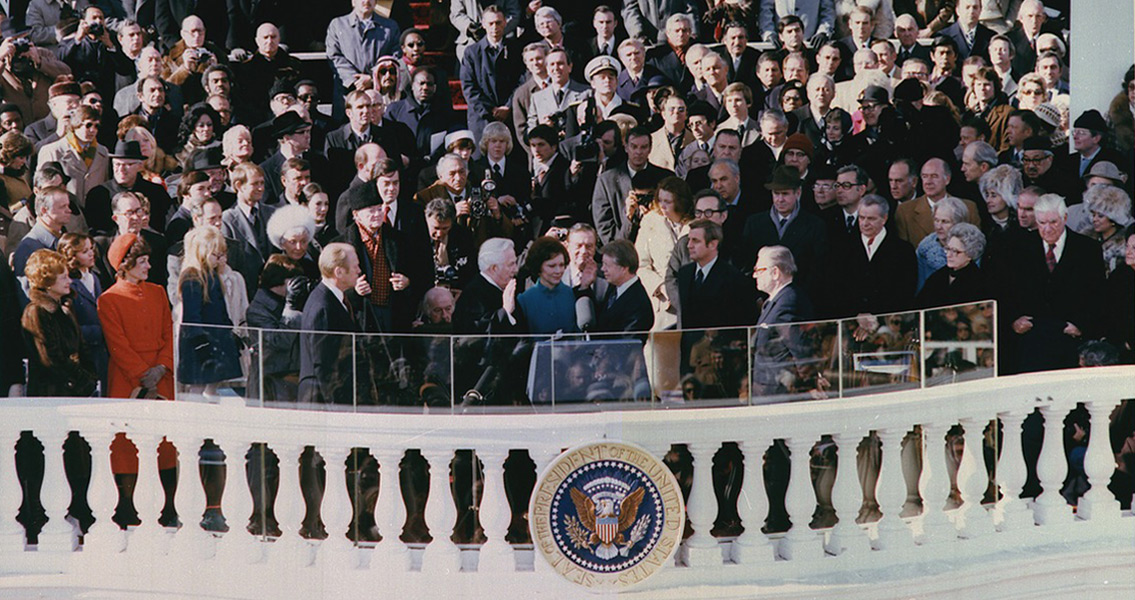<![CDATA[On the 21st January 1977, the day after his inauguration speech, US President Jimmy Carter granted amnesty to hundreds of thousands of men who had evaded 'the draft' - military conscription - during the Vietnam War. The event highlighted America slowly coming to terms with its recently ended involvement in the conflict, one which had been so divisive and damaging to American society. A pledge to grant an unconditional pardon to "draft dodgers" from the Vietnam War had been a key part of Carter's election campaign. The 1960s and 1970s had been blighted by a host of controversies which divided the nation and dented faith in the political system; the John F. Kennedy and Martin Luther King assassinations, the Watergate Scandal, and of course, the Vietnam War and the death and mass protests associated with it. Carter's amnesty may have been an attempt to draw a line under this controversial period, to signal a new start. Protest against conscription was not unique to Vietnam. From the Spanish-American War onward it had always been a controversial subject, with men campaigning against or conspiring to avoid conscription. Whether through taking part in public protests or going into hiding, each war the USA became embroiled in was normally met with protests from conscientious objectors or pacifists. During Vietnam however, the campaigning was much more disruptive to the Selective Service System. As evidenced in the Student Protests against the Vietnam War, it was a conflict that the Sixties Generation viewed as unjustified and this, combined with the media saturation about the conflict's brutality, seemed to give new impetus to the anti-conscription movement. The maximum penalty for evading a United States' draft was a $10,000 fine and five years imprisonment. From 1964 onward however, students began publicly burning their draft cards as an act of defiance. By 1969 the Student Body Presidents from 253 US universities had written to the White House making clear their decision to refuse conscription to the armed forces. By 1972, as the resistance to the draft reached its peak, there were more conscientious objectors than draftees. The amount of resistors was so great that the backlog of draft refusal cases eventually became too large for the authorities to prosecute the majority of violators. Just how many Americans evaded the draft is unclear. What is known is that between 1964 and 1973, 1,857,304 people were drafted into the United States' Armed Forces. It has been estimated that some 210,000 violated the Selective Service Act in some way, although only 4% of that number were actually convicted. The ambiguity over the figures relates to the ways the Act was breached. It has been estimated that in total 100,000 men fled abroad to avoid military service, with the majority heading north of the border to Canada. Because many of them never returned from their new homes however, the exact figures are vague. The rest of the draft evaders went into hiding in the US itself, again, leading to ambiguity over the exact figures. Carter's amnesty was intended to encourage draft evaders to return home or come out of hiding, but it was far from universally popular, despite the massive unpopularity of the Vietnam War. For veterans of the conflict, it seemed to downplay their sacrifice by allowing those who refused to fight to avoid punishment. For others it set a dangerous precedent that undermined the armed forces and failed to punish unpatriotic behaviour. For those on the left, Carter's amnesty did not go far enough, as it failed to pardon deserters, civilian protesters or those dishonorably discharged from the armed forces. In a broader context, Carter's actions could be seen as an attempt to try and bring a true close to the Vietnam War. It was a conflict that had been humiliating for the US military and the country's foreign policy. Domestically it had torn the country apart, with protests and controversy surrounding government transparency on events of the conflict. Nevertheless, draft evasion and the Vietnam War remain controversial issues, and US politicians as recent as John McCain and George Bush Jr. have been accused of evading the draft, revealing its continued stigma. ]]>
Carter Pardons Vietnam Draft Dodgers
